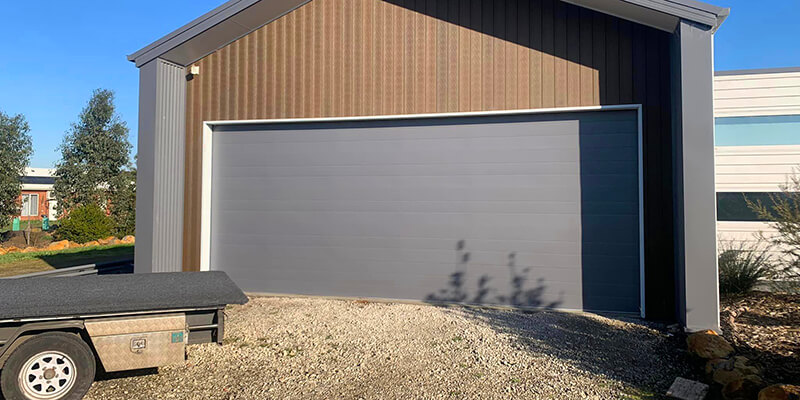Dealing with a malfunctioning garage door can be frustrating, especially when you’re not sure what’s wrong. Fortunately, many common garage door problems have simple solutions. In this comprehensive guide, we’ll walk you through the basics of garage door troubleshooting, so you can identify and solve issues quickly and efficiently. Whether you’re facing a door that won’t open, one that closes too quickly, or any number of other problems, we’ve got you covered.
Grip Your Garage Door System
Before diving into troubleshooting, it’s important to understand the basic components of your garage door system. This includes the door itself, the opener, springs, cables, rollers, and tracks. Each part plays a crucial role in the door’s operation, and issues with any one component can affect the entire system.
Common Garage Door Problems and Solutions
| Problem | Symptom | Possible Solution |
| Door won’t open or close | The door doesn’t respond to the remote | Check batteries, reprogram remote |
| Noisy operation | Squeaking or grinding sounds | Lubricate moving parts |
| Door closes then reverses | Door starts to close then opens again | Adjust limit switches |
| Door is off its tracks | The door is not aligned properly | Realign or repair tracks |
| Broken springs | Door won’t lift or feels very heavy | Replace springs (professional recommended) |
Step-by-Step Troubleshooting Guide
- Check the Power Source: Ensure that the garage door opener is plugged in and that there is no power outage in your area.
- Inspect Remote Batteries: Dead batteries are a common culprit. Replace them to see if this solves the issue.
- Lubricate Moving Parts: Squeaking or resistance can often be remedied by lubricating the rollers, tracks, and springs with a garage door lubricant.
- Clean and Align Sensors: Misaligned or dirty sensors can prevent the door from closing. Clean them with a soft cloth and make sure they’re properly aligned.
- Adjust Settings: If your door closes too quickly, or reverses unexpectedly, adjusting the opener’s force and limit settings might be necessary.
When to Call a Professional
While many garage door issues can be resolved with simple fixes, some problems require the expertise of a professional. This is especially true for tasks like spring replacement, which can be dangerous if not done correctly. If you’re unsure about a repair, or if your troubleshooting efforts don’t resolve the issue, it’s time to call in the experts.
CHS Garage Repair of Seattle
If you’re in Seattle, WA, and facing persistent garage door problems, CHS Garage Door Repair Seattle is here to help. Our team of experienced technicians can quickly diagnose and solve any garage door issue, ensuring your door operates smoothly and safely. Trust us to provide reliable, efficient service tailored to your needs.
FAQs
How often should I perform maintenance on my garage door?
Perform maintenance at least once a year. Lubricate moving parts, inspect hardware, and test the door balance to ensure optimal operation.
What should I do if my garage door opener remote stops working?
First, try replacing the batteries. If that doesn’t work, reprogram the remote or consult a professional for a replacement.
Can I replace broken springs on my garage door myself?
Replacing garage door springs can be dangerous. It’s recommended to hire a professional to ensure safety and proper installation.
Why is my garage door making a loud noise when it opens or closes?
Loud noises often indicate that parts need lubrication or that there’s an issue with the rollers, springs, or tracks. Inspect and lubricate these parts as needed.
How do I know if my garage door sensors are out of alignment?
If your garage door reverses before closing completely or doesn’t close at all, your sensors might be misaligned. Check if they’re level and facing each other directly.
What’s the best way to clean my garage door tracks?
Use a damp cloth to remove debris and dust from the tracks. Avoid lubricating the tracks as this can attract more dirt and cause issues.
Can weather affect my garage door’s operation?
Yes, extreme temperatures can affect the lubrication and contraction/expansion of the door’s components. Adjust settings and maintenance practices seasonally.
By following this guide, you’ll be equipped to handle common garage door issues with confidence. Remember, when in doubt, or for more complex problems, it’s best to consult with the experts at CHS Garage Repair of Seattle. Our team is dedicated to providing top-notch service and ensuring your garage door operates perfectly.






